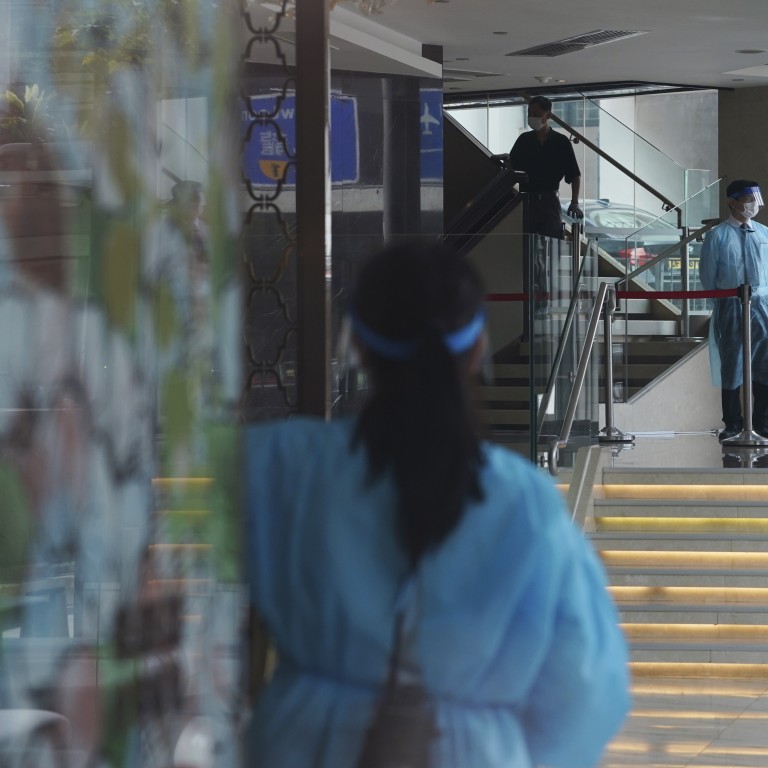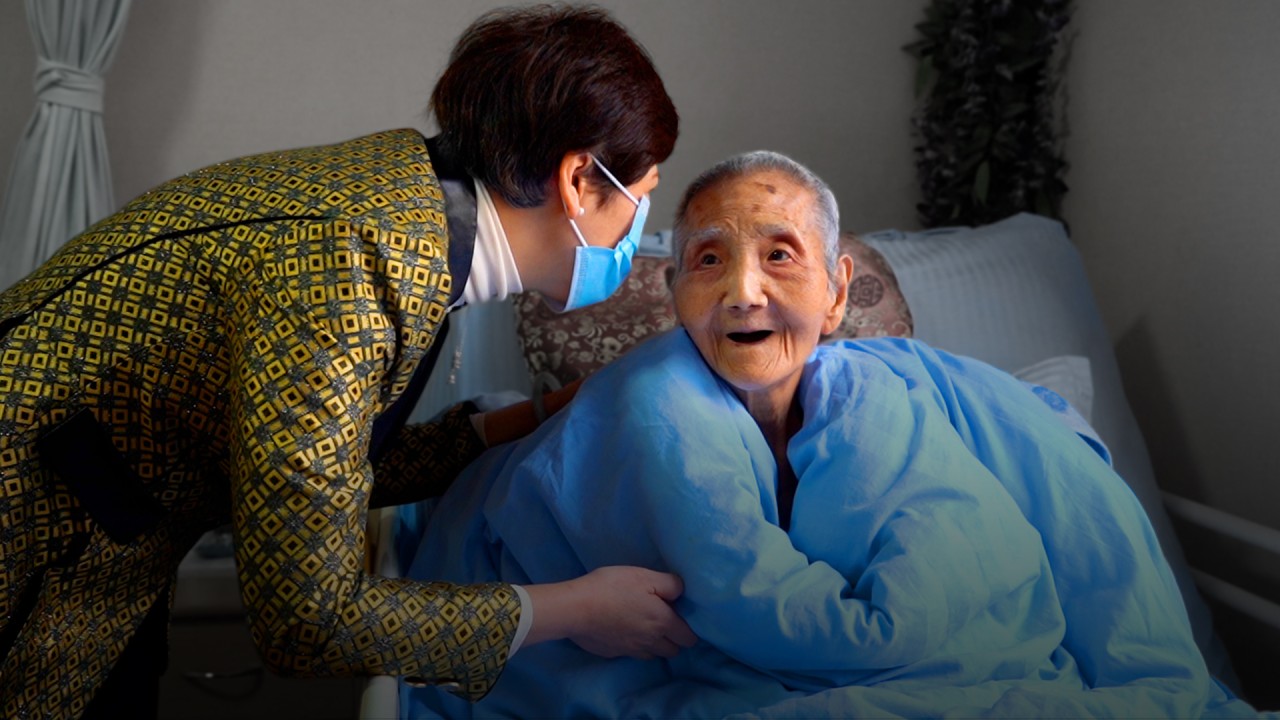
A hotel for new mums and older residents? Hong Kong owners get creative to beat industry slump
- A dedicated floor for entertainment, work-from-home packages and a place for new mums with childcare support are among recent new ideas
- When tourists return in full force, will Hong Kong hotels return to their old business models, or build resilience for the next crisis?
In Hong Kong, the news was just about as bad as it can get. There were just 16,538 foreign visitors in the first quarter of 2021 compared with nearly 3.5 million a year earlier and 18 million in the first three months of 2019, according to data published by the Tourism Board.
The influx of international tourists the city had been accustomed to for the past two decades has been reduced to a trickle as various restrictions forced travellers to stay at home. As a result, all types of accommodation from luxury hotels to budget hostels have suffered.
Why? Besides the mandatory quarantine requirements and other forms of assistance from the government, hotel owners and operators have adopted some creative ways to fill the rooms to survive the unprecedented crisis.
Staycation or transformation
People in Hong Kong are staying at home too. So one option is to tempt locals to take a break or enjoy a “staycation.” Lower prices, special deals and extra touches of luxury that guests would normally have to pay for can create a very attractive proposition.
But simply offering a price cut is not alluring enough at times, and may even have a negative impact on their accounts. Thus, some hotels have taken the idea a step further.
A hotel in Tsim Sha Tsui, for example, is offering a dedicated floor of entertainment such as a mini-movie theatre, a Virtual Reality game room and a playroom for toddlers. Others offered work-from-home packages to attract those in need of a refreshing change in working atmosphere. We have also seen hotel rooms being turned into quiet space for students during the typically stressful exam season.

01:40
Travel bubble: Hong Kong and Singapore to launch quarantine-free entry after long delay
As for those who must travel and observe quarantine requirements, hotel operators can take the necessary steps to fulfil the criteria of a quarantine hotel to help fill the rooms.
A more extensive renovation could turn hotels into serviced apartments or co-living spaces, though location and cost as well as current town planning and restrictions in leases will come into feasibility consideration.
New services for affluent locals
Some owners have completely reworked their business models and decided to target specific groups of affluent among the local population.
Many hotels are now offering month-long stays for new mothers, for example. These stays come with all every support they could possibly need – from practical help with childcare to educational workshops and nutritious meals.
This type of service has been popular for some time in mainland China and Taiwan. The high cost of real estate made these ideas impractical in Hong Kong in the past, but the Covid-19 pandemic has created a window of opportunity for a rethink.
Another business is looking further into the future with plans to turn hotels into assisted living for people with dementia. Within the aged care industry, a trend has been gaining traction with elderly-care service providers expanding and taking over some retail locations vacated by restaurants.

13:30
Chinese woman couldn't find suitable nursing home for elderly parents, so she opened one
There is also evidence that 100,000 people in Hong Kong, or about 10 per cent of the city’s elderly population, will benefit from living in a purpose-designed safe and supportive community. This could also be a way of addressing one of the city’s pressing social issues.
People with dementia require round-the-clock care as well as specialist technology and purpose-built amenities to enhance safety and fulfilment. The cost of upgrading to these standards is bound to be steep, so owners would need to weigh the size of the investment against future returns. Even so, the risk could be mitigated by the potential of growing demand as the population continues to age.
Temporary or permanent change?
Not everyone is waiting for the return of tourists and the industry to former glory. Some players have chosen to exit the scene, like the New Century REIT which was delisted recently. Others are scouting for opportunities, taking the view that the hotel industry has already reached the bottom in the current cycle.
As Covid-19 vaccination gathers pace across the world, there is a growing sense of optimism that international travel will be gradually restored. Economists and investors are expecting a recovery very soon, and average daily rates can be expected to jump instantly as borders are reopened. From a return perspective, charging these rates is more attractive in most cases.
Governments around the world are setting out plans and framework to safely resume international travel. While this is encouraging news for the hotel sector, one interesting question remains.
When tourists do start flowing back to Hong Kong, will the city’s hotels go back to their old ways of doing business? Or could this be an opportunity to build resilience by integrating an innovative alternative strategy for the longer term?
Stephen Lin, director for valuation and advisory services at CBRE Hong Kong

